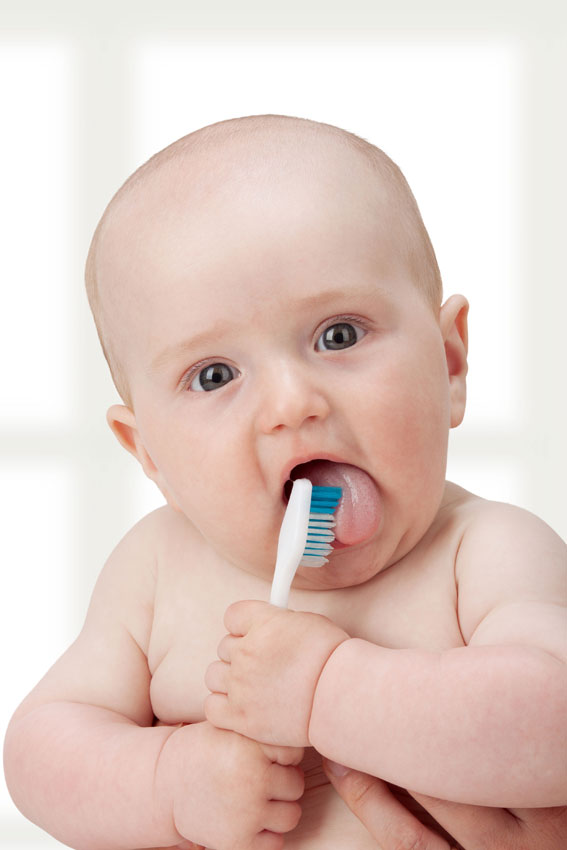Infant Dental Care: What to Expect
Some parents may believe that taking care of their child’s baby teeth isn’t as important as caring for adult or permanent teeth, because baby teeth will fall out. Dentists, however, say that baby teeth are very important allowing for the child to eventually chew food and talk correctly. Baby teeth also save the spaces in a baby’s gums for future permanent teeth.
If you are a little nervous about taking a fussy child to the dentist, you might investigate finding a pediatric dentist. These dentists receive two to three years specialty training after dental school and they limit their practice to treating just children. Pediatric dentists are both primary and specialty oral care providers for infants and kids through the teenage years. Most can treat kids with special health care needs.
When your child is born, they have twenty baby teeth — ten in the lower jaw and another ten in the upper jaw — hidden under their gums.
The two front teeth in the lower jaw are often the first to appear. Usually this happens when the baby is between six and ten months old, but some children will start teething when they are just a few months old and others when they are a year old.
If an infant’s molar is knocked out early, the baby teeth next to the missing tooth may move toward the gap and create spacing issues for the permanent tooth when it appears.
When to bring your baby to the dentist
Dentists maintain that it’s vital to bring your baby in for their first dental exam when they are between six months to a year old, or after their first tooth erupts.
You can expect the dentist and his or her staff to review your child’s oral hygiene and overall health, how and what your child eats and drinks, and their risk of tooth decay.
Signature Smiles of Houston, for example, can recommend when to it may be appropriate to discontinue bottle-feeding, when to start flossing, and whether or not fluoride rinses are a good idea for your baby. They can also help proactively identify cavities in young teeth.
If your child develops decay in a tooth, they will need professional treatment or possibly specialist treatment in a hospital while they receive a general anesthetic. If a decayed baby tooth is ignored, your child could develop mouth pain, a dental abscess or infection, and issues with the teeth next to the decayed one.
What to expect during your child’s first visit
During your child’s first visit, the dentist or hygienist will remove any stains or deposits on your child’s teeth, show you proper cleaning methods, discuss how much fluoride your child is getting, and look for sores and bumps inside their mouth. If your child is using a pacifier or sucking their thumb, the doctor or hygienist will also tell you about how that may affect their teeth.
When your child is about six years old, their first permanent teeth will appear. The four molars, or two in each jaw, come in behind your child’s existing baby teeth. Other adult teeth, including the incisors and canines, will erupt into the gaps in the gum left by lost baby teeth.
By the time your child turns twenty-one, he or she will have thirty-two permanent teeth. Sometimes, however, the third molars, or wisdom teeth, do not emerge. But that is considered normal as well.








